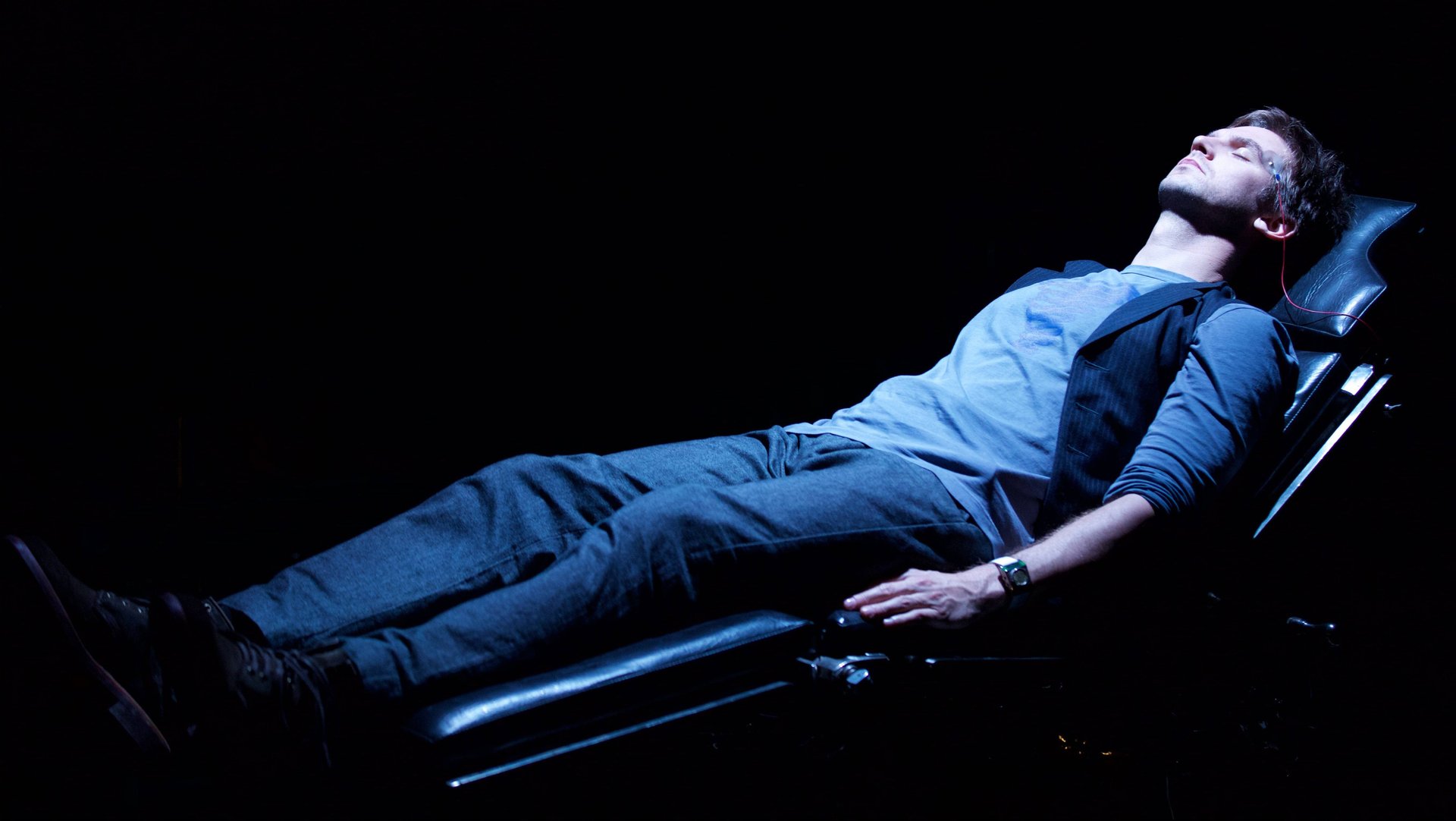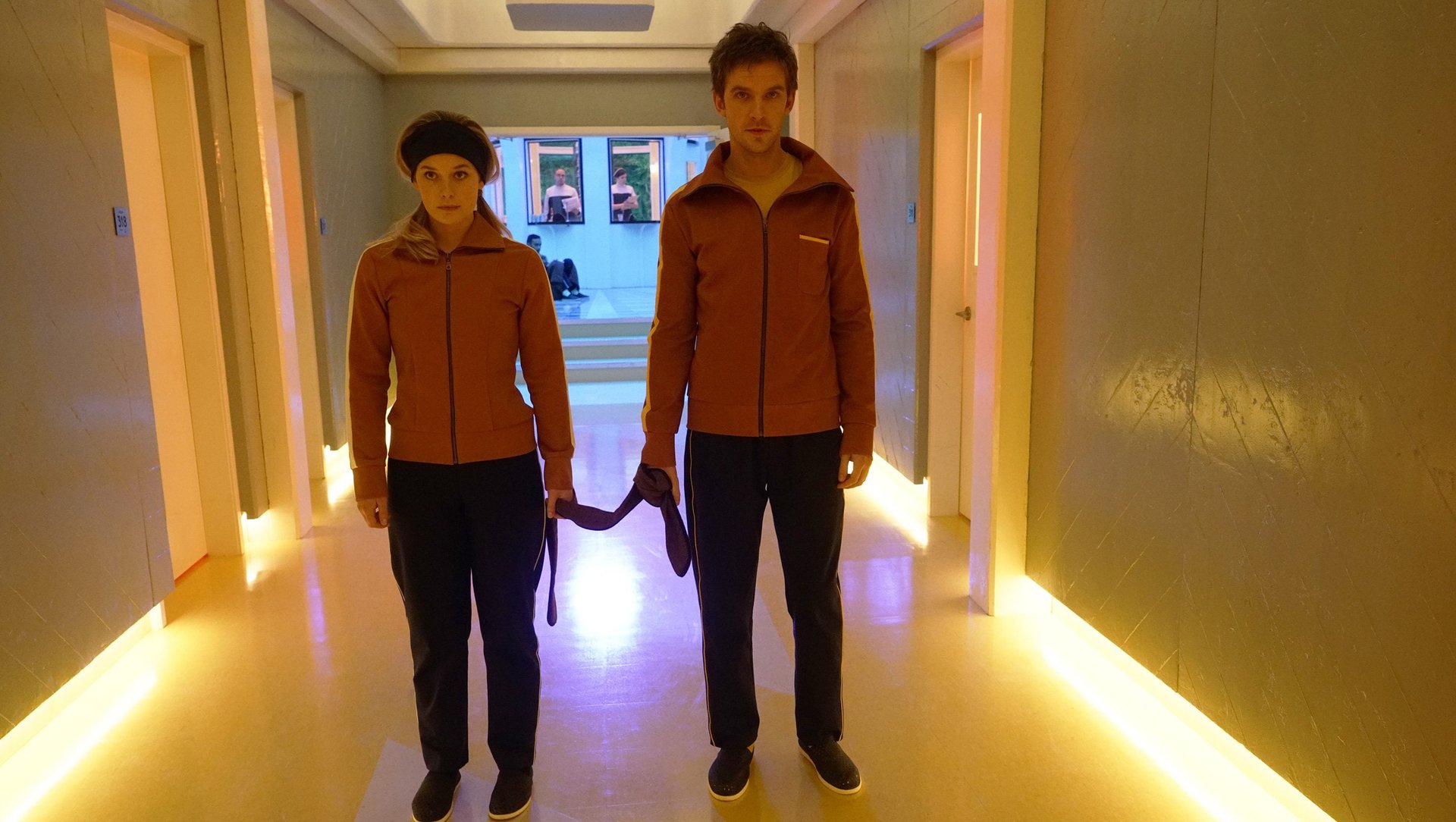The transfixing music of “Legion” traps you in the chaos and beauty of a superhuman mind
Plug in your headphones and step inside the mind of David Haller, the most powerful mutant on Earth. Go on:


Plug in your headphones and step inside the mind of David Haller, the most powerful mutant on Earth. Go on:
You’re listening to one of the main tracks composed for Legion, the most confounding—and arguably most brilliant—series on television. The show paints, in colorful, bizarre, at times inscrutable strokes, the life of David Haller (played by Dan Stevens), a young man with a troubled past who’s institutionalized for what doctors believe is an extreme case of schizophrenia. It turns out he’s not exactly schizophrenic. He’s superhuman.
The full extent of Haller’s powers are unclear, but he can read people’s thoughts, control objects with his mind, teleport, and travel seemingly at will to and from various planes of existence.
Based on the Marvel character of the same name, Haller is not your typical superhero, and Legion eschews nearly all of the genre’s popular tropes: spandex, capes, and heroic theme music.
That makes the job of Legion composer Jeff Russo a difficult one. He not only has to write compelling music that is fun to listen to and promotes creator Noah Hawley’s vision for the show, but he also must play the role of psychological interpreter, figuring out how David’s powerful, fractured psyche might translate into external sound.
“I had to try and think of what a superhero score was, and then try to not do that at all,” Russo told Quartz. He first drew inspiration from Pink Floyd’s legendary album Dark Side of the Moon, which Russo affectionately calls “the crazy person’s manifesto.” At Hawley’s request he also read the book Hallucinations by Oliver Sacks, focusing on the chapter on auditory hallucinations to imagine what they might sound like if they could be distilled into music and recorded.

Because David is an unreliable protagonist, and his entire reality subjective, Russo wanted his music to oscillate between the real and the imaginary. To do that, Russo used instruments ranging from violins to heavy rock guitars, to atonal electronic machinery, and transitioned between them all liberally.
In Haller’s main theme music, above (and appropriately titled “David”), those transitions from vibrant, natural-sounding orchestral music to the more enigmatic, almost inanimate electronic score are on full display. From 0:00 to 0:20 seconds, ominous piano plinks intersperse an ethereal, space-y sound. Then, from 0:21 to 3:05, another motif kicks in, a pattern of pulsing electronic beeps and boops that gradually gets faster and louder, and then softer and slower, over and over again, with the instrumentation changing ever so slightly on each iteration.
After that, the song moves into a gentler, orchestral track, which Russo says signifies David’s romance with Syd Barrett, another mutant. (If that name sounds familiar, that’s because it’s a very intentional Pink Floyd reference.) “When he’s with Syd, there’s this lull in that white noise in his head,” Russo said. ”It’s Syd that keeps him from going over the edge.” The calming power of love.
“The idea that we’d go back and forth between what’s organic and what’s inorganic ran parallel to what was real and what was not real in David’s mind,” Russo added. “But we wanted those [transitions] to be unintelligible, like you can’t tell that it’s changed until it’s too late.”
But a few of the musical transitions are meant to be noticed. In the pilot episode, David is locked in a room and interrogated by a shadowy government agency. He quickly realizes, though, that the agents in the room are afraid of him, and as he becomes more aggressive, the music swells. But that confidence soon fades, and with it, so does the booming, accelerating synth track.
“What happens in his mind when all this anger and all this aggression is released?” Russo said. Apparently, it sounds like a deflating, out-of-tune music box:
Another abrupt musical transition is the one to the blaring, violent horn blasts (video) that punctuate most appearances of the “Shadow King,” a grotesque and corpulent parasitic entity that has tethered itself to David’s mind in order to become more powerful. The horn blasts are every bit as intrusive to the viewer as the villainous character is to its host. The show, more detail-oriented than just about anything else on TV, is rife with small moments like this where its technical aspects (music, cinematography, costumes, set design, etc.) externalize David’s thoughts.
Luckily for Russo, he doesn’t have to do all the work. Legion is also blessed with an eccentric, self-deprecating song list from outside musicians, including The Who, The Rolling Stones, Serge Gainsbourg, Radiohead, and Nina Simone. Decisions on when to use outside music (versus original score)—and which songs to use—usually fall on Hawley, Russo says.
But in the spirit of juxtaposing two very, very different things to symbolize the irregularity of David’s world, Russo occasionally gets to impart his own take on famous compositions to viewers of Legion. (As a founding member of the 1990s rock band Tonic, he’s used to collaboration.)
The mind is a beautifully weird thing, and it’s the only place in the universe where you can conjure a silent-film fight scene set to a mostly electronic cover of Ravel’s Boléro.